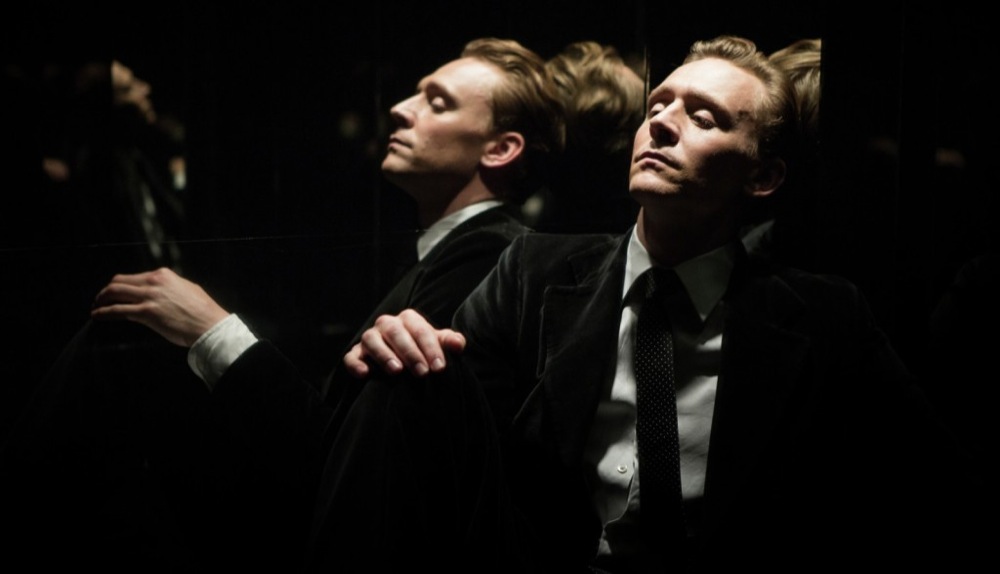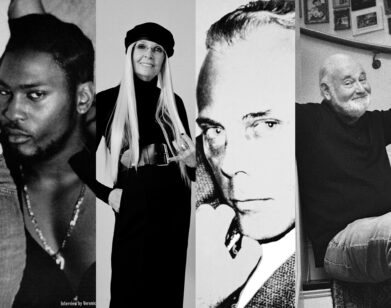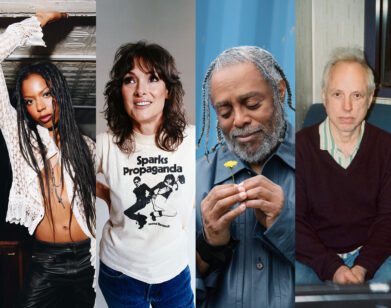The Characters of Tom Hiddleston
In the past four years, Tom Hiddleston has played a forever-youthful vampire with a passion for ambient music, a perfidious Norse god, a captain in the British army during WWI, and chronicler of the Jazz Age F. Scott Fitzgerald. You cannot accuse British actor of relegating himself to a certain comfort zone.
“I definitely go through periods where I’m in a particular mood, or there’s a consistent imaginative context that I feel I’m in, and I’m drawn to certain things,” explains Tom Hiddleston at the Toronto Film Festival. “I can sometimes feel it when I’m moving away from something that I was once interested in—an idea or an exploration of particular relationships,” he continues. “I go, ‘Well, I think I’ve done that and I don’t want to do it again.’ You can often only put your finger on it when you look back—the 20/20 vision of hindsight.”
Hiddleston’s upcoming filmography is no different. At Toronto, he presented two new films: Marc Abraham’s I Saw the Light, a classic biopic in which Hiddleston plays country legend Hank Williams, and Ben Wheatley’s High-Rise, a dystopian tale of the decline of humanity based on a 1970s J.G. Ballard novel. Next month, he’ll co-star opposite Mia Wasikowska and Jessica Chastain as a conflicted British aristocrat in Crimson Peak, Guillermo del Toro’s gothic romance.
On paper, Hiddleston has much more in common with his High-Rise character, physiologist Doctor Robert Laing, or even Crimson Peak‘s Sir Thomas Sharpe, than he does with Hank Williams. Raised between London and Oxford, Hiddleston spent his formative years at Eton and studied Classics at Cambridge. Now 34, he is five years older than Williams was when he died of heart failure in the back of a car. But Hiddleston is a remarkable performer and on screen, he inhabits all three characters with equal grace.
EMMA BROWN: I saw High-Rise yesterday. I found what Ben Wheatley said quite interesting, how the film isn’t about a class war between the upper class and the working class; it’s about the tension between the upper and upper-middle classes.
TOM HIDDLESTON: I think it’s sort of embedded in J.G. Ballard’s book. I feel like he very carefully selected the professions of the inhabitants of that building. You have a physiologist, Doctor Laing, on the 25th floor; an architect in the penthouse, who’s also not far from a soap star, a gynecologist, a news reader; and then, in the bowels of the building, you have a documentary-maker, and people who have, I guess, more everyday professions: accountants, dentists. I supposed they are all quite well-heeled characters. I think it’s a satire on the moral values of that slice of society.
BROWN: The book was written and published in the 1970s, and the film is set in the ’70s. Does it feel like a period piece about Thatcher’s England or do you think it’s something that is relevant today?
HIDDLESTON: I’ve always thought it was relevant today, but I think that’s because I see it in the context of Ballard’s prescience about our attachment to technology. The high-rise has taken the place of the natural world as the primary nourisher of these people. It’s so deeply inadequate, it’s like it’s diseased—a dysfunctional organism that pollutes its inhabitants. J.G. Ballard always talked about our attachment to technology and how it was only going to continue and advance at an incredible velocity; it was going to become so embedded in the culture that it would actually create psychological shifts in how we conceive of ourselves. The way he talked about the industrialization of the moving image, he sort of predicted YouTube and Instagram and social media. I think he saw in the ’70s that we were becoming increasingly reliant on machines to provide services where in the past human beings were your access, and he was just interested in where that takes you. So I suppose I see High-Rise in that context. It’s a warning. It’s who we might become.
BROWN: Does the idea of it as a warning affect how you live your day-to-day life?
HIDDLESTON: One of my New Year’s resolutions, which I had not thought about all weekend until you asked me, was to interact more with people. That sounds quite technical, but literally face time. Not FaceTime, because that’s a thing now, but to be in the room with someone. To turn your phone off. To sit and have dinner and just be there with somebody. If you can run around the corner and say hello to someone do that instead of emailing. It’s always more rewarding; the connection is always more authentic. If you’ve got something to say and you can say it someone’s face, it’s so much better—healthier. I don’t know why that should be. Maybe that’s just a personal point of view.
BROWN: No, you can get so much more from an in-person conversation: tone, body language.
HIDDLESTON: Exactly. It’s a language we don’t understand in a way, the language of digital communication. People say the internet is like the Wild West in that it’s lawless and we haven’t worked out how to make it structured or moral. What do you think?
BROWN: I am optimistic.
HIDDLESTON: Me too. I fundamentally believe that in the moral balance of the human race, we right ourselves. If we feel like the ship’s keel is off, we find a way to steer ourselves through the storm repeatedly. I found it interesting to inhabit Ballard’s point of view.
BROWN: You’d worked with Jeremy Irons before. Had you worked with anyone else in the cast?
HIDDLESTON: No. I knew lots of people before. I knew Luke Evans, because he’s almost an exact contemporary of mine. We’d met each other doing the rounds. I’d always admired him. There’s something about being part of a generation when you’re in your early- to mid-20s, and it very quickly becomes quite a small world where you bump into people a lot, and you root for people. You actually do. It’s so gratifying to see people succeed.
BROWN: The movie is quite brutal in parts. It’s quite funny in other parts; but there are definitely some rather dark moments. What was the mood like on set? Ben Wheatley seems pretty hilarious.
HIDDLESTON: Ben’s great! Ben’s so funny and playful and wise. He treats everyone with incredible respect and delicacy. There’s no ego, but immense authority—the authority of assurance. He’s able to say, “I’ve got this. I know what I’m doing” without having to bark it. It was a very playful, very mischievous set. He knew we all had to slightly let go of more inhibitions than usual, and he made it feel very safe and fun. It’s almost alarming how much fun it was for a film that’s so dark.
BROWN: I wanted to talk about I Saw the Light as well. You mentioned your voice coach after the premiere. He sounds like a character.
HIDDLESTON: Yeah. He’s amazing. He’s a musician in his own right. He’s been playing music for over 30 years; won many Grammys, recorded many albums. He’s a deeply respected, great man of Nashville. His name is Rodney Crowell.
BROWN: How did you get set up with him?
HIDDLESTON: Marc Abraham, our writer-director, works very closely with a producer called G. Marq Roswell. He was our producer and he thought of Rodney. G Marq and Marc called Rodney up and said, “Are you interested in being involved?” And Rodney had actually seen Hank Williams perform on stage on his father’s shoulders at the age of two. Rodney’s had this extraordinary life. He was married to Roseanne Cash for 17 years. He recorded songs with Johnny Cash. Hank Williams is the icon in Nashville. He’s the godfather of so much of that genre. We met for the first time and I said, “Listen, Rodney, if I were playing an athlete, if I were playing a sprinter, I would need somebody to tell me how many times a day I should run and how fast and what distance, and by the same token, I need you to tell me how many hours to practice and what sort of practice.” And he said, “Just commit to the meaning of the songs. Learn the songs and then come stay at my house in Tennessee and we’ll get into it.” It was such an unusual experience—it’s so unlike anything I’ve ever done. He basically was my blues teacher. That’s what we found his main focus was, trying to change my rhythmic instincts. I somehow, as an Englishman, had a different rhythm to people who sung the blues. That process was really fun. It was truly transformative to get up in the morning, make porridge together, and then go into his studio at the back of his house and start singing. He’d go, “Okay. The Englishman is in evidence this morning.” So then we’d sing these blues classics by Jimmy Reed for an hour or two and go back to Hank and suddenly it would be looser—rhythmically looser. He was my guide through the South. I lived it and breathed it for five weeks.
CRIMSON PEAK AND I SAW THE LIGHT WILL COME OUT OCTOBER 16 AND NOVEMBER 27 RESPECTIVELY. HIGH-RISE WILL NEXT SCREEN AT FANTASTIC FEST IN AUSTIN, TEXAS, THIS SATURDAY, SEPTEMBER 26.







